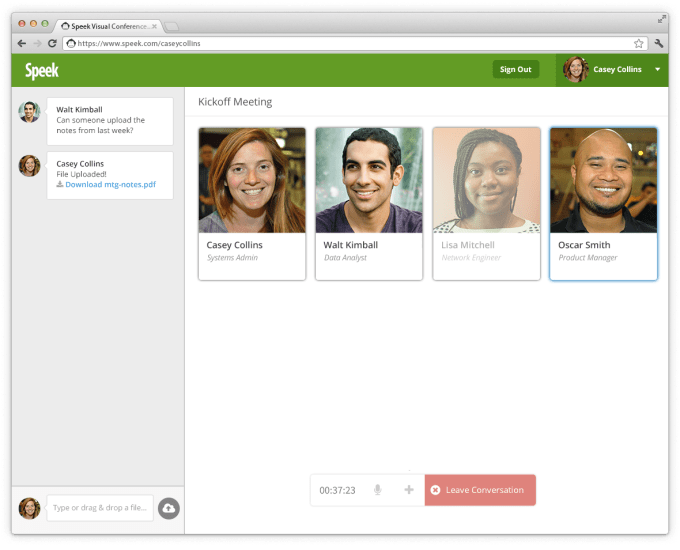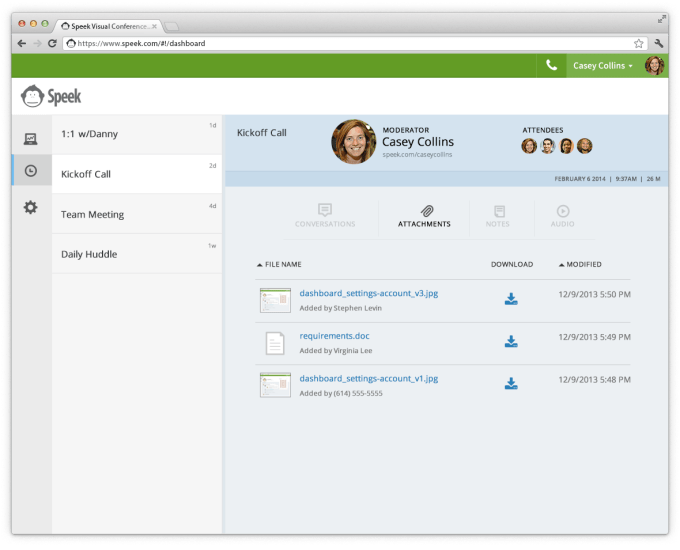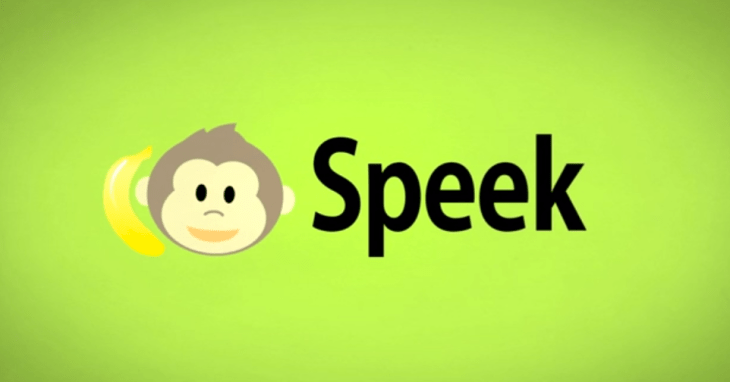Conference calling startup Speek, which offers online and mobile tools that make it easier to jump on calls regardless of which device you have on hand, and then do more on calls once connected, is today announcing $5.1 million in Series A funding. The round includes $2.7 million in previously raised convertible notes, plus new investment from 500 Startups, Edward Norton (yes, the actor), CNF Investments, Middleland Capital, and others.
A few notable angels in the round are Michael Chasen (Blackboard); Timothy Chi and Sonny Ganguly (WeddingWire); Jeffrey Wolfe and Robert Wolfe (CrowdRise); and Haroon Mokhtarzada and Zeki Mokhtarzada (Webs).
Also as a part of the round, Alexander Pessala from Middleland Capital is joining Speek’s board.
D.C.-based Speek was founded in 2012 by CEO John Bracken, co-founder of Evite, and CTO Danny Boice. Both had worked in corporate environments in the past, and knew the pain points of dealing with conference calling solutions first-hand.
Boice can list a host of issues with traditional conference calling with ease. “Dialing into a phone number with a PIN – that pattern, when you’re on the go on a mobile phone, it’s really difficult to do. There’s no visual experience, you don’t see who you’re talking to. There’s the annoying beeps when someone joined,” he explains. “And it’s been that way for decades.”
Speek updates the old system by, first, making it easier to join a call. Every Speek user gets their own personal link – for example, Boice has speek.com/danny. These can be distributed to others instead of a dial-in, and callers can choose to join the conference in a number of ways, depending on what’s easier for them. They connect using VoIP from their web browser, enter in their own phone number to have the service ring them, or, if on mobile, they can basically just hit a button to join the call from the Speek app.

While the call is in progress, the company offers visual indicators of who’s talking, which also show additional details like their LinkedIn or other social profiles. It also offers administrative functions to block callers or mute others, plus tools for messaging and file sharing. (The latter supports access cloud services, as well, like Dropbbox, Box, Google Drive, Evernote, and others.)
After the call wraps, data and analytics around the call are made available, detailing things like who attended, how long the call was, who spoke the most and more.

These features put Speek in close competition with other modern conference calling solutions, including Andreesen Horowitz and Google Ventures-backed UberConference, for instance.
Like UberConference, Speek declined to offer specific user numbers, details on growth or revenue, saying only that “hundreds of thousands” of people have been on Speek calls to date. However, Boice did point out that two out of three Speek users primarily use the company’s native mobile apps to join calls, which indicates it has a good foothold on mobile.

The company offers a freemium solution, where its paid product (Speek Pro) is a flat $10/month per user. A recently soft-launched “Speek for Teams” edition is available for businesses who need more administrative functions, added support, or who want to customize the interface using their own branding.
Overall, the solution works well for companies with 10 to 100 employees, or smaller teams within enterprise organizations, Bracken explains.
With the additional funding, Speek will focus on adding features that appeal to these users, notes Boice, like added security controls, collaboration features for editing a document together, tools to share slideshows, and integrations with other enterprise-level products, like Salesforce.
The now 16-person company will also be looking to expand its marketing reach and sales team, with the latter going from just a few users to a dozen in the coming year or so. “We have pretty good awareness for a startup of our size, but we think we can take it to the next step,” says Bracken.
